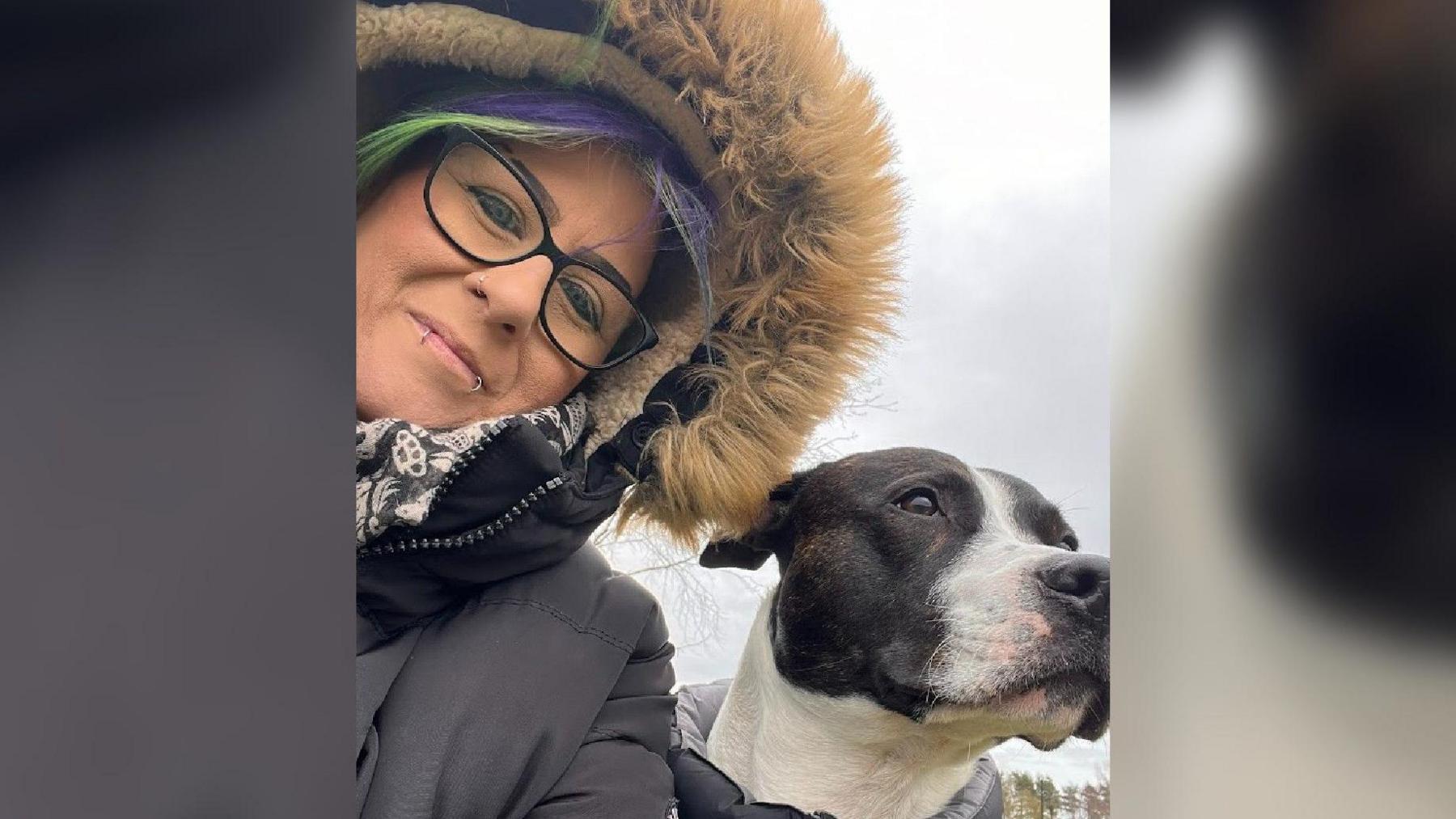Mum 'forced' to go private over hysterectomy wait
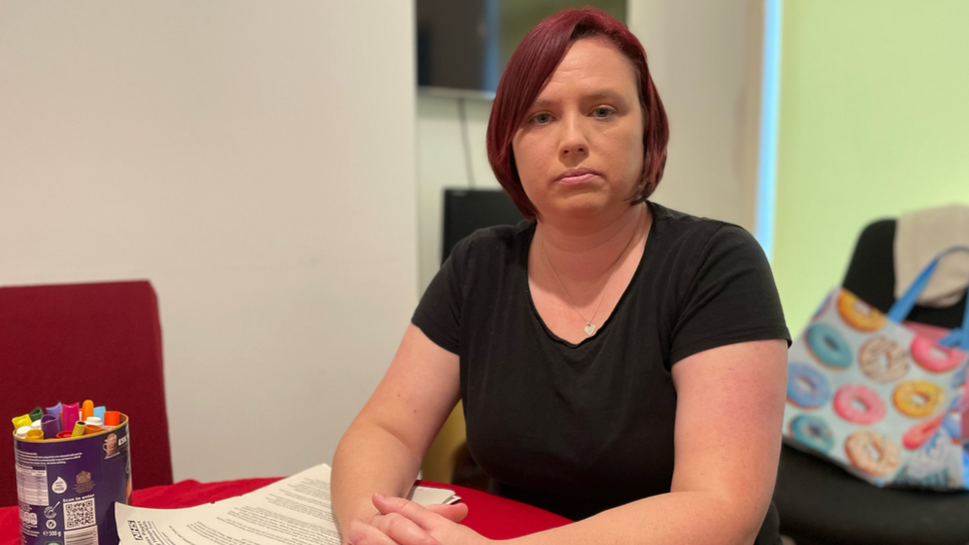
Sandy Simmons said that despite being in constant pain, she had no idea when the NHS would be able to carry out the operation
- Published
A woman left in constant pain because of the need for a hysterectomy said she felt she was "forced to go private" to get treatment.
Sandy Simmons, from Great Yarmouth, suffered a uterine prolapse and had already waited more than a year for treatment at the Norfolk and Norwich University Hospital (NNUH).
Under an NHS target, patients are supposed to be treated within 18 weeks, following a non-urgent referral. The hospital said it was "working hard to reduce waiting lists".
But the mother-of-four said that as her condition worsened, she felt left with no choice but to seek private care.
BBC Sounds
Chief operating officer Chris Cobb said teams were "carrying out additional theatre lists and clinics at weekends, including gynaecological procedures".
"It is a priority of ours to accelerate our elective recovery over the coming weeks and months to ensure patients can access care when they need it," he added.
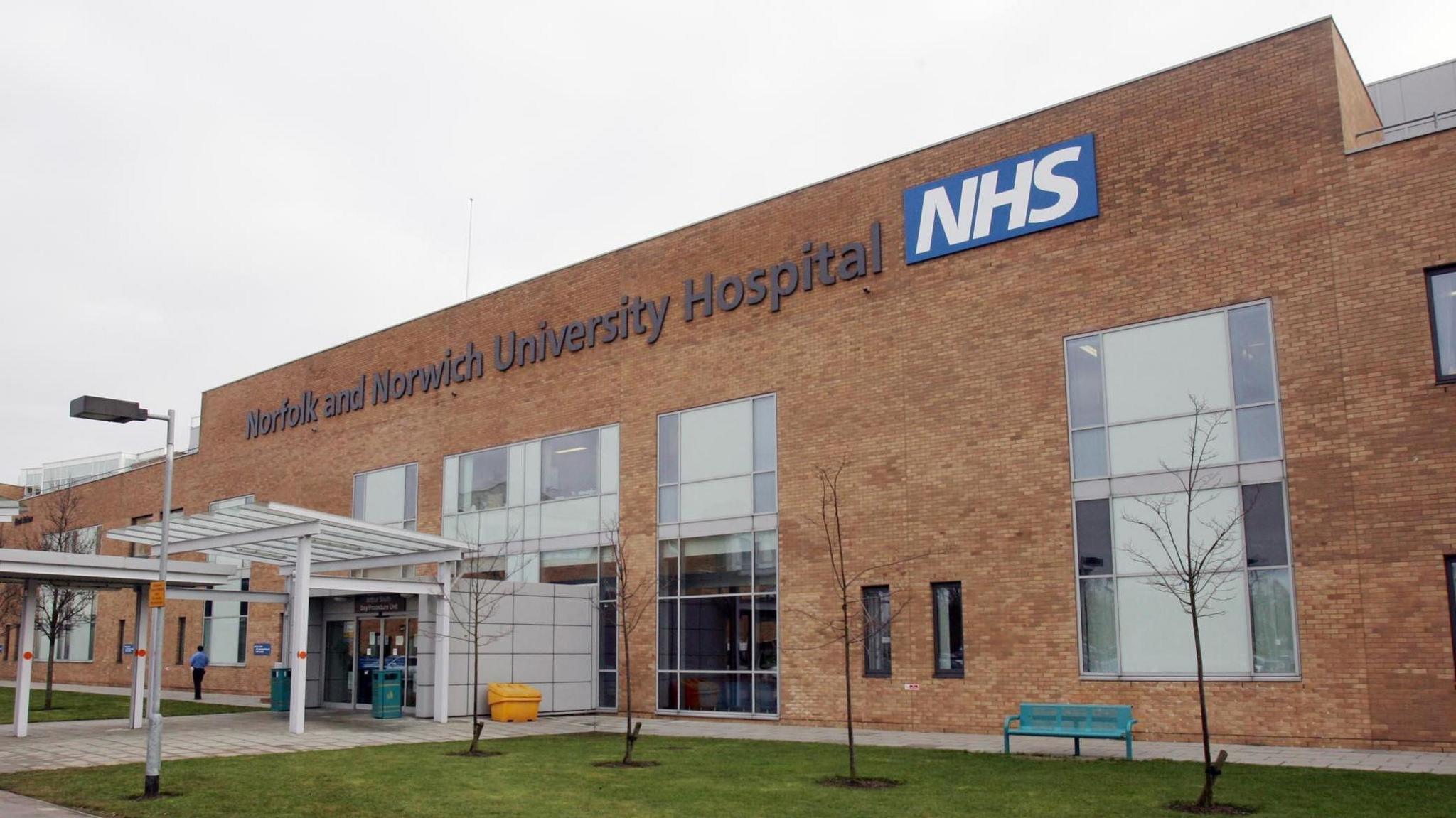
The Norfolk and Norwich said it was carrying out extra operations at weekends to bring down waiting lists
Mrs Simmons previously spoke to the BBC at the beginning of the year, describing how the prolapse had left her in "horrendous pain".
"My work was suffering, I couldn't go out. I was just in and out of hospital," she said.
"I asked them how long it [a hysterectomy] was going to be, it'd just get pushed back months and months to the point where my last phone call with them, they couldn’t tell me how long I was on the waiting list for."
The 40-year-old signed up to a private health care plan when she was first diagnosed with a prolapse in 2021.
She said she realised it could be used for the operation, but she felt she had to use it to stop the pain.
"I felt I was forced to go private," she said.
"The NHS is there for everybody – it's something the UK is known for. So to have to go private really upset me."
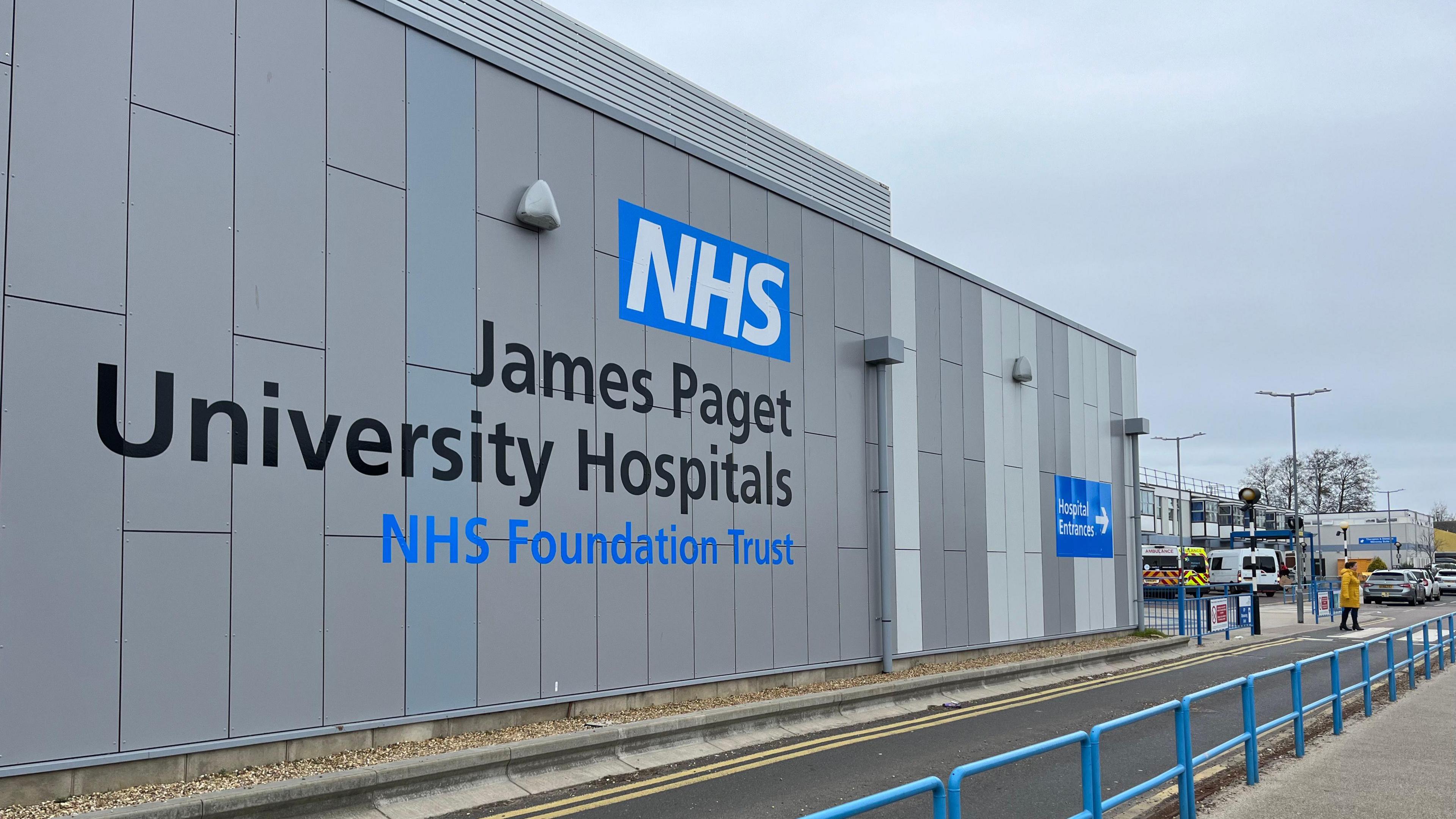
Just 36% of gynaecological patients at the James Paget Hospital in Gorleston received treatment within 18 weeks of a referral
Official figures show that 879 women had been waiting over a year for gynaecological treatment at NNUH, with 41.8% treated within the NHS target of18 weeks, following a referral.
That compares to an average of 54.3% across England.
The James Paget University Hospital in Gorleston was the second worst performing hospital in England, with 36% of patients completing treatment in 18 weeks.
A spokeswoman for the James Paget said its gynaecology team "have been working to make improvements and have been focussing on delivering earlier diagnosis for patients who may have gynaecological cancers".
She added that the hospital was continuing to work to reduce waiting times whilst also "prioritising cancer, the most urgent and the longest waiting patients".
'Unacceptable'
Dr Martin Hirsch, from the Royal College of Obstetricians and Gynaecologists, warned that delays in treatment risked patients’ conditions becoming worse.
"We've seen around an 18 to 19% rise in acute gynaecology admissions and this may well be a reflection of our inability as a specialty to manage these non-cancerous conditions properly," he said.
A Department for Health and Social Care (DHSC) spokeswoman said it was "unacceptable that so many women are not receiving the gynaecology care they need, when they need it".
"This government is determined to change that and is committed to prioritising women's health," she added.
Mrs Simmons said that having a hysterectomy had made "a massive difference" to her health, but it was "really scary" that other women still faced long waits for treatment.
"It's not just you sitting there in pain, it's the risk of losing your job – it's the risk of losing friends because you can't go out any more because of the bleeding and pain that you're in," she said.
"The government needs to really act on it."
Get in touch
Do you have a story suggestion for Norfolk?
Follow Norfolk news on BBC Sounds, Facebook, external, Instagram, external and X, external.
More stories like this
- Published4 January 2024
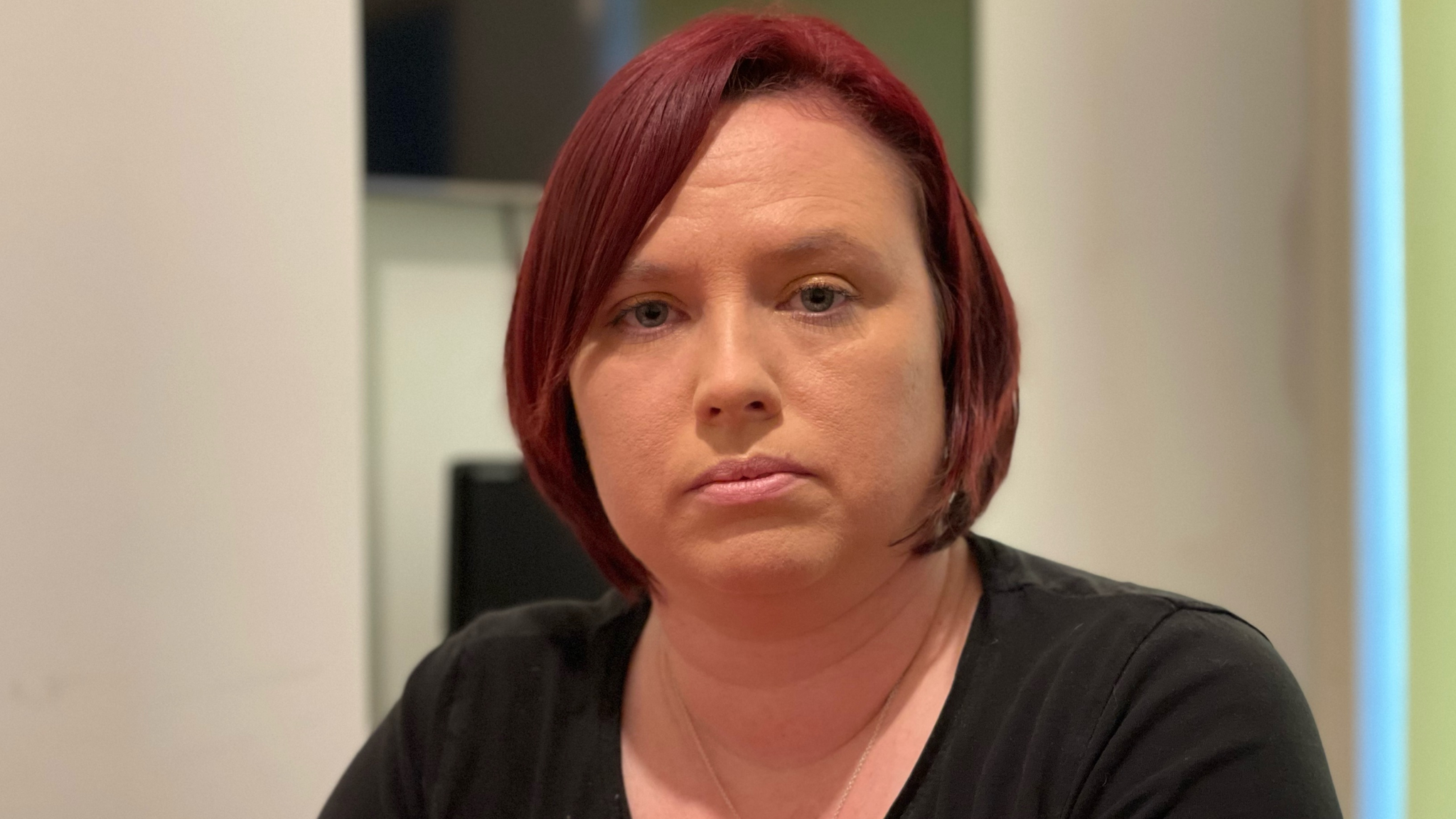
- Published15 May 2024
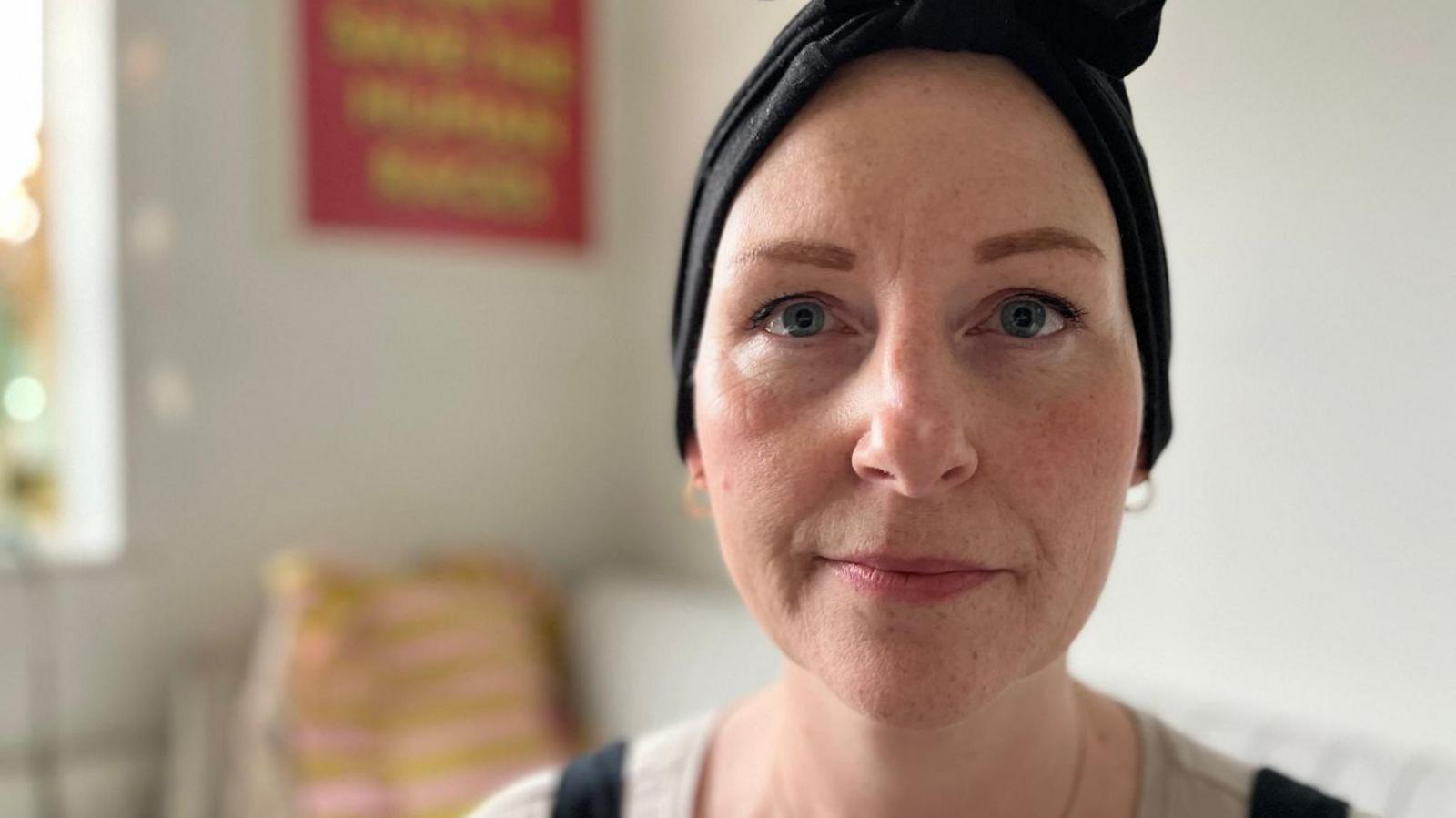
- Published13 October 2023
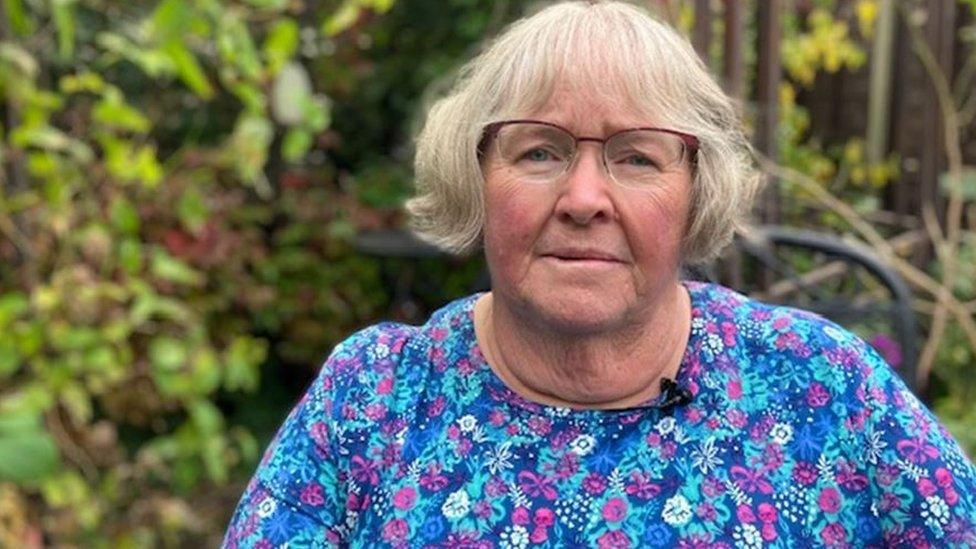
- Published4 May 2024
